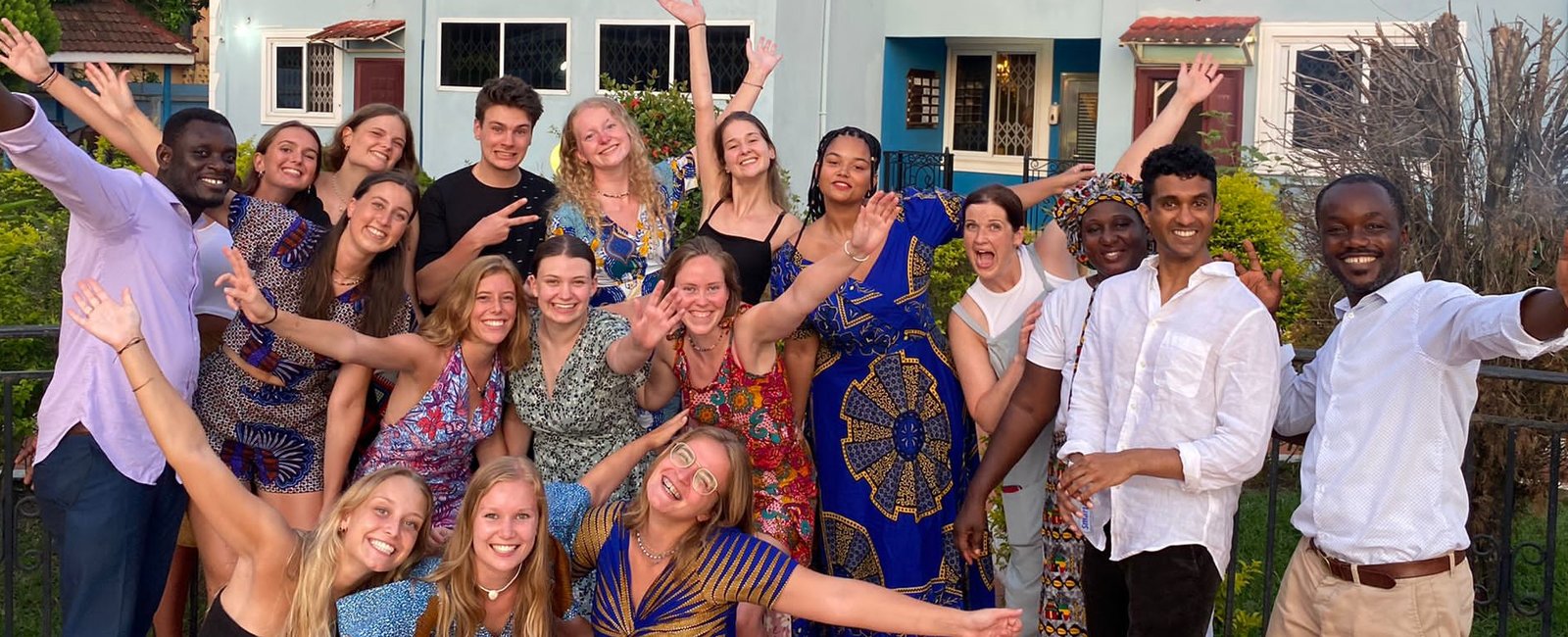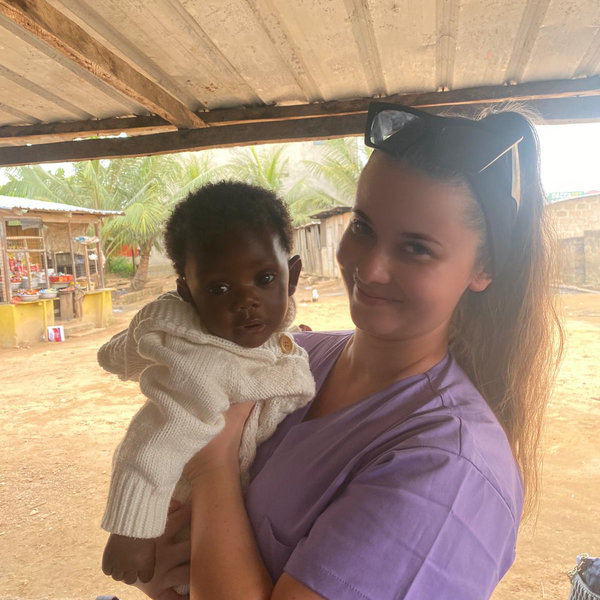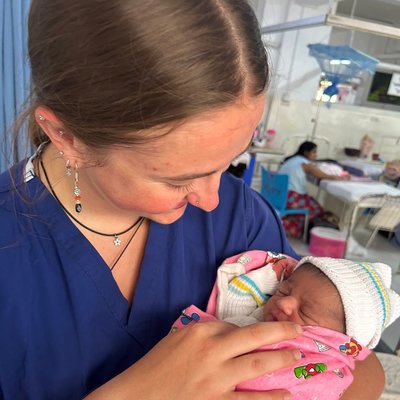HZ University of Applied Sciences 2022
 My degree requires that I do a placement for 12 weeks. I chose to travel overseas for this, and I had always wanted to visit the African continent, so when I learned about Work the World I was excited to get started.
My degree requires that I do a placement for 12 weeks. I chose to travel overseas for this, and I had always wanted to visit the African continent, so when I learned about Work the World I was excited to get started.
I ended up travelling to Ghana, and after I went through the pre-departure process with the Work the World head office in the UK it all started to feel real.
I travelled with a friend who I have known since I was 13 (we are now in the same year and in the same nursing school), and she has always wanted to travel in Africa as well.
I like being in new situations and I’m not someone who gets homesick. So, when we arrived and we did the drive from the airport to our new house I was full of excitement.
The long drive was great because we got a good idea of what the country was like. We saw street sellers and women carrying water on their heads with babies strapped to their backs. There was a lot of nature too, and the style of the houses was quite different.

It was a real ‘wow’ experience. That’s when I realised where I was and what I was about to do.
We got some time to settle into the house and say hello to our new housemates. Then the next morning the team took us to explore the city and to introduce us to our placement hospitals.
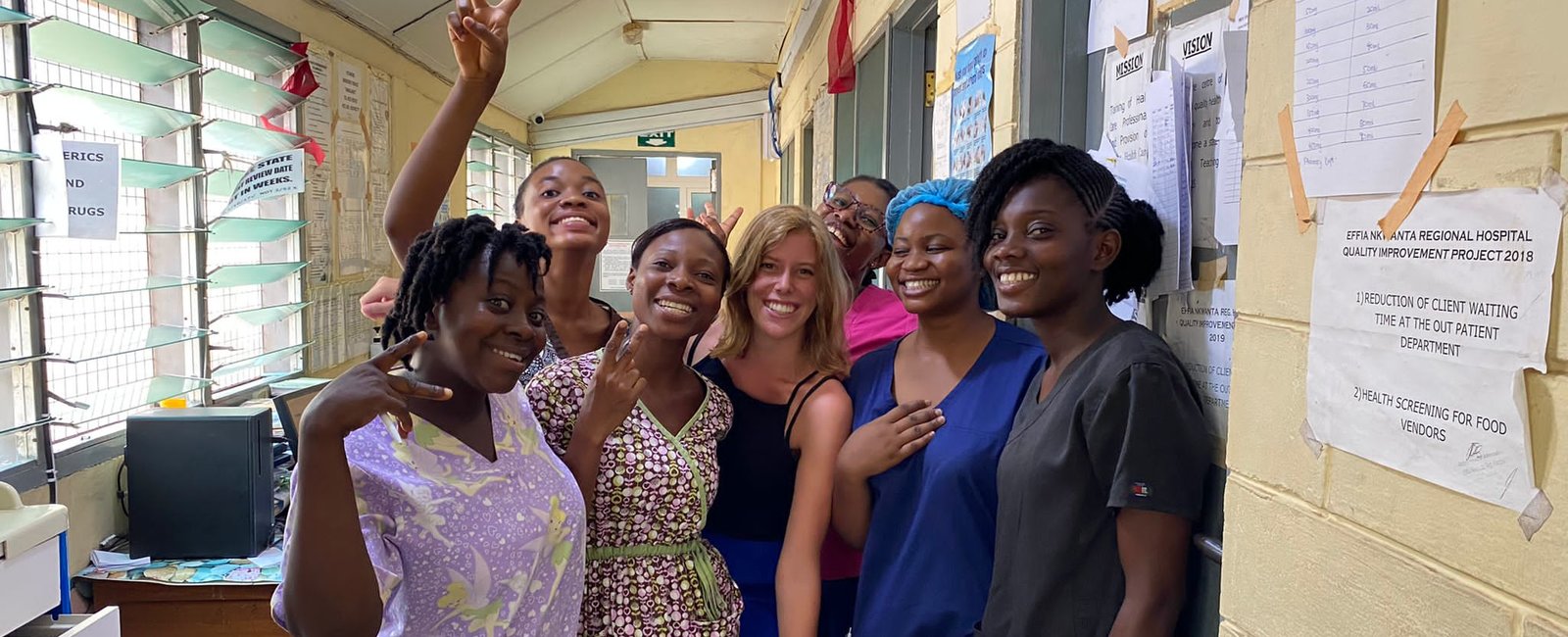
One of the first things I noticed was how the pace of things was much slower than back at home. And as the weeks went by, we saw some emergencies but no one seemed to be in much of a rush. The idea of urgency wasn’t the same as it is in the Netherlands.
I spent most of my time in Accident and Emergency because I like the action. The staff were really nice and let you get involved in lots of different things. But I spent some time in OBG and some in the paediatric department and in the NICU as well.
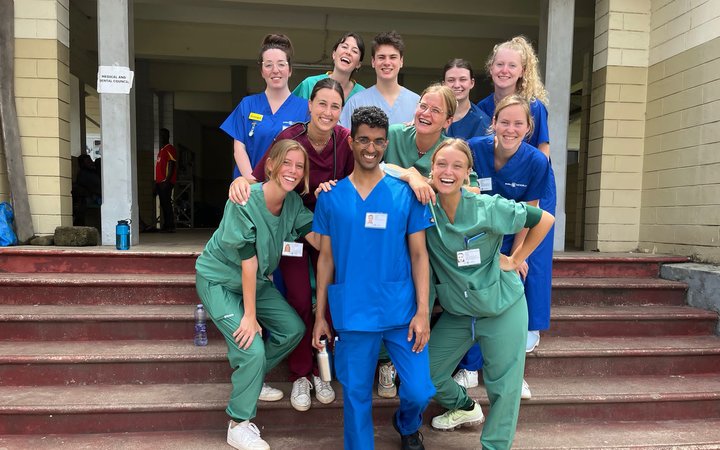
Another big difference was the sanitisation standards. In the Netherlands, we wash our hands all the time and keep everything sterile and clean. But in my placement hospital in Takoradi I saw things like the same needle being used when inserting IV lines and the same pair of gloves used between different patients.
It wasn’t always like this. With things like wound care they would put on sterile gloves, but it wasn’t consistent. They definitely had less resources than we do back home, but a lot of the time it seemed more like it was just their way of doing things.
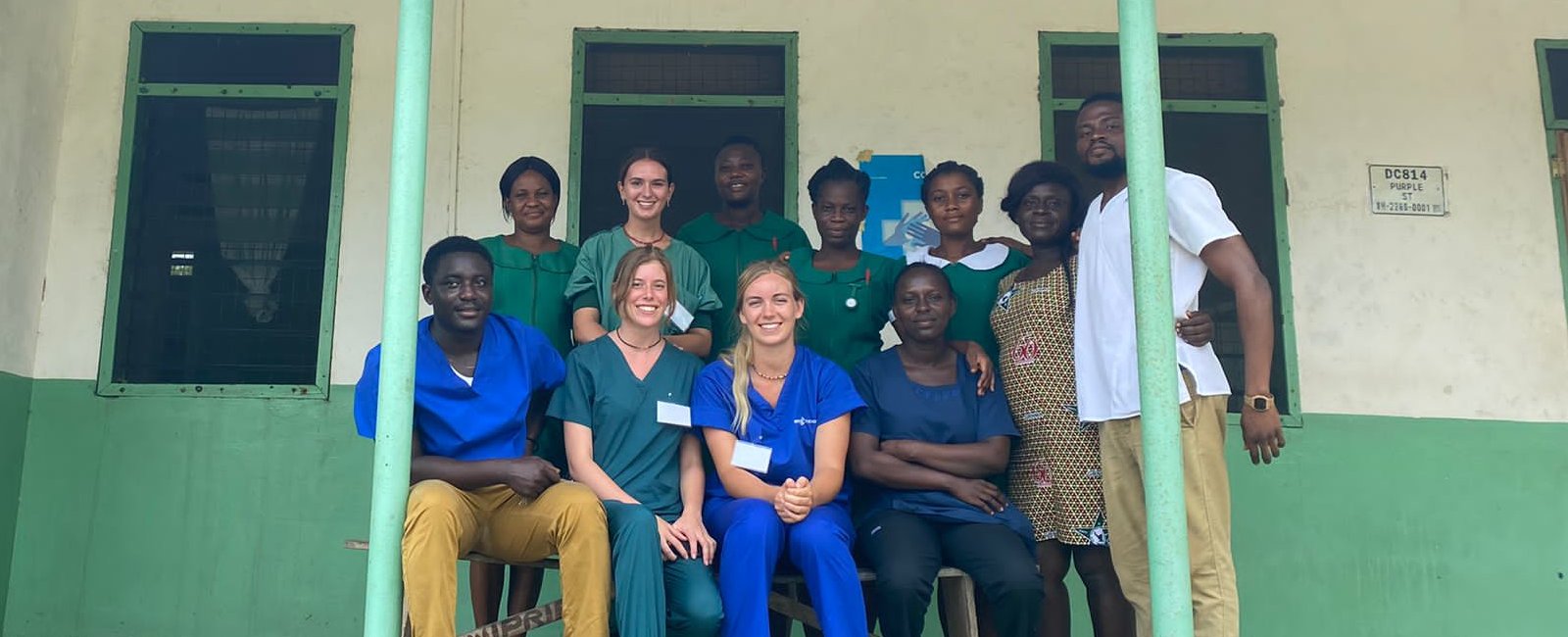
I was so impressed with the knowledge of the doctors. I think I unconsciously had the idea that the training in more developed healthcare systems was better. But it was exactly the other way around. The doctors in Takoradi knew everything by heart because they have to, I’ve seen doctors back at home searching for things online.
One of the most powerful experiences I had was when I spent a week in a maternity hospital. I wanted to see some deliveries and understand more about the role of Ghanaian midwives, so Work the World helped arrange this for me while I was out in Ghana.
 On my last day in the hospital, one woman collapsed on the floor and she was quite delirious. We had just arrived at the hospital, so we put our bags down and hurried over to help where we could.
On my last day in the hospital, one woman collapsed on the floor and she was quite delirious. We had just arrived at the hospital, so we put our bags down and hurried over to help where we could.
We got the background information that she had just had a c-section, so I asked if she had lost a lot of blood. Unfortunately they hadn’t monitored how much blood she had lost, so we couldn’t know. The woman became more delirious, so we moved her baby away to another bed. I checked her blood pressure, but the machine wasn’t working so I had to use the manual pump. It turned out that she had lost so much blood that the readings weren’t accurate at all.
By this point there were lots of doctors and nurses around and tensions were very high. They were trying to get an IV line in, but they really struggled to get it in. And the woman was bleeding a lot because her blood had stopped clotting. Someone had sent for blood, but even when it arrived, they still didn’t have an IV line.
Eventually, the woman’s heart stopped and we tried CPR, but it was too late. There was even one point where they were considering injecting adrenaline directly into the woman’s heart. It was a really challenging situation because in the Netherlands the woman would have had a much higher chance of survival.

We were happy to have lots of time outside of placement to process these experiences and see some of the beautiful country we were in as a contrast.
We did most of the trips that the Work the World in-country team suggested, but we also did some that were a bit more ‘off the beaten path’.
We visited national parks and saw wild elephants and those kinds of things, but I also managed to go paragliding which was a dream come true. The views over Kwahu from up in the air were just amazing. Ghana is such a beautiful country.

I had my birthday while we were over there, so we travelled up to Accra to party. That same weekend we went to a place called Shai Hill, which is a huge nature reserve where you can hike in the mountains, go rock climbing and even hold snakes if you want to. I was there for 12 weeks, so I got to see and experience so much of the country and I’m so glad that I did.

If you have any doubts about going on a trip like this, but you know you want to go overseas then Work the World is the best possible way to do it. You get so much support before you go, and then the in-country team who work in the house will take great care of you. They were all so lovely and sorted out any problem even if it was something small.

It doesn’t matter if you travel alone or with a friend — when you’re in the house all the housemates are really welcoming and you become like a little family. Basically, you’ll have a great time.
